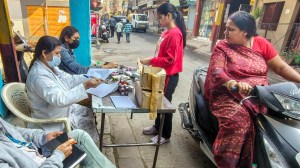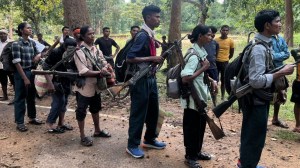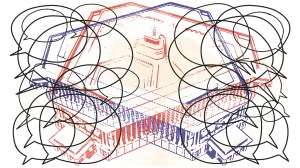Learning to cope with handover blues
HONG KONG, June 19: In all of Hong Kong, it is only in Chung King ansion that tandoori chicken can give soya duck a run for its money. At H...

HONG KONG, June 19: In all of Hong Kong, it is only in Chung King ansion that tandoori chicken can give soya duck a run for its money. At HK 15 a 8220;leg piece8221; in a bright orange hue, it8217;s a steal.
It8217;s not just chicken. A relentless search for bargains of every description drives all activity within the innards of this building that rises grey and dour on Kowloon8217;s Nathan Street. Over the years, Chung King Mansion has come to be known as Hong Kong8217;s Little India a highrise, colonial cousin to London8217;s Southall.
Walk past the sari shops here madam, new Swiss voile has just come in, or the money changers no commission charge, or Taj Mahal Club we serve mild, medium hot, very hot food, and one can discern a new mood in the air. Nothing manifest, of course, but there8217;s no mistaking that tugging undercurrent of anxiety.
Of course if you ask Shammi Kapoor who is busy totting up a bill for chicken-curry-chappati for a customer, he8217;ll pronounce the two words that seem to come easily to the archetypal Hongkongese: 8220;No problem.8221;
But if you hang around till he8217;s finished his paperwork, and strike up a conversation, chances are that he would qualify that to: 8220;No problem, at least for now.8221; How long is now? 8220;What can I say? Two years, three years?8221;
For the 28,000-odd Indians of Hong Kong, especially those who haven8217;t made it to the list of people who are entitled to British passports, this is a period of waiting and watching. And lying low. While they make up just a small fraction of Hong Kong8217;s population of 6.3 million, it is estimated that they account for about 10 per cent of its overseas trade.
8220;We are peace-loving people. All we want is to do our business peacefully,8221; says Vashi L. Surtani Victor, whose lingerie and nightdresses are all a-flutter at the doorway of his shop.
His words sum up the general view in Chung King Mansion. 8220;We are not interested in politics,8221; says Jamshaid Ali, a Pakistani, whose electronic goods outlet, New Star Trading Co, draws visitors like a fly trap. They, in turn, buy his electronic insect traps very effective, only HK 80.
He admits that many Indians and Pakistanis here are worried only about their business prospects, not about the possible changes in lifestyle that the new Chinese regime may bring. As one onlooker put it: 8220;Let them impose their rules. We will live by them. But we must be allowed to do business.8221;
Almost everyone agrees that business has declined over the last few years for whatever reason. The more well-off have succumbed to their anxieties and invested elsewhere in Canada and Australia. Others have been persuaded to move their jewellery and money to Singapore.
Surtani has little patience with this last lot: 8220;My own sister went off to Singapore to deposit her jewellery. I told her she was a fool. What would happen if you died, I asked her. Some Singaporean will get it, that8217;s all.8221;Anyway China is too big to fight he observes, resignedly: 8220;Look how India took over Goa. Did anything happen? When big giants take over, you can8217;t fight them. You have to adjust.8221;
Adjust. A very Indian expression. Two blocks away, on Hankow Road, Molly Ahluwalia is adjusting too. But unlike the little guys of Little India, hers is one of Hong Kong8217;s best-known firms dealing in sports goods.
Her tone has a confidence that is lacking in the people who inhabit Chung King Mansion: 8220;To me, it does not matter who comes or who goes. As long as we follow the rules, there won8217;t be much change.8221;
According to her, China needs Hong Kong and will do nothing to destroy what it represents the interests of entrepreneurs like her:8220;When my father, K S Ahluwalia, who first came here in 1927 and started this business died, he wanted his ashes to be thrown into Hong Kong8217;s waters. Like it was for him, it is for me. This is the only home I know.8221;
For people like her and Davinder Rajpal, a general manager with National Mutual, the takeover with all its uncertainties also represents new challenges. 8220;Hong Kong has traditionally been a gateway to opportunity.
China can give us its labour and resources. We can give it our infrastructure and financial services. Together we can maximise our mutual strengths. With 1.2 billion more consumers, the possibilities are immense.8221;
There is a T-shirt hanging in Kowloon shop with the words 8220;The Great Chinese Takeaway8221; emblazoned on it. The visual shows a pair of chopsticks, wielded by a uniformed hand, swooping down on little Hong Kong. Will Hong Kong be consumed? Or will it survive as a tasty tidbit, too valuable to be wolfed down? The question marks rise like the forest of highrises that shape the Hong Kong skyline.
- 01
- 02
- 03
- 04
- 05































